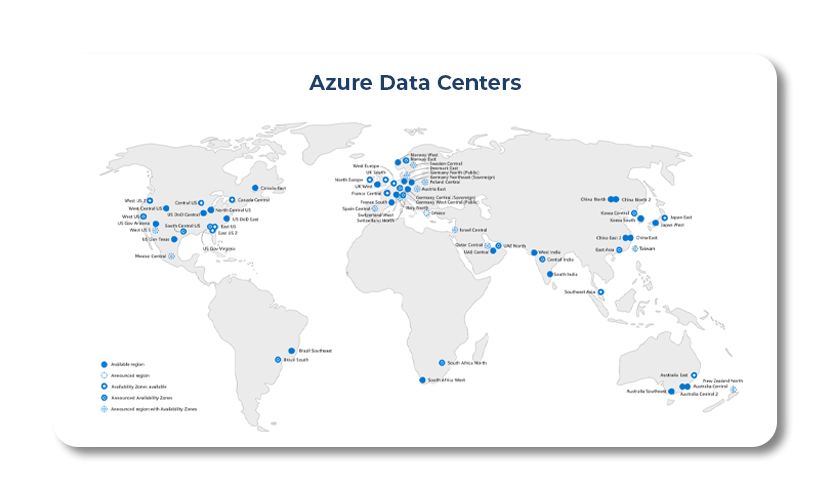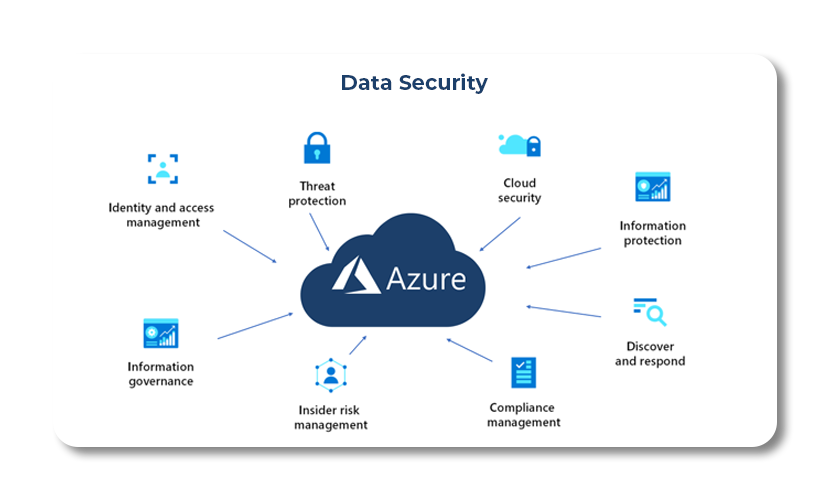Cloud computing has become an indispensable facet of successful business operations. Among the multitude of cloud service providers, Microsoft Azure has carved out a prominent space, largely due to its versatility and integration capabilities. To help you navigate the world of cloud computing and decide if Azure is the right solution for your business, let's explore the pros and cons of Microsoft Azure.

Unraveling Microsoft Azure: The Pros
High Availability
Arguably, one of the most compelling advantages of Microsoft Azure is its high availability. The Azure infrastructure sprawls across the globe, with data centers all around the world. This wide distribution allows Azure to deliver redundancy, robustness, and resilience that are virtually unparalleled.
What does this mean for your business? In practical terms, Azure’s service level agreement (SLA) pledges an uptime of 99.95%, which roughly translates to a mere 4.38 hours of potential downtime per year. For any business owner, the assurance of near-constant availability is invaluable, considering the detrimental impact that prolonged service disruptions can have on operations and customer relationships.

Solid Data Security
All businesses – regardless of size - are vulnerable to cyberattacks which is why data security cannot be overlooked. Azure places a strong emphasis on security, following a comprehensive security model that includes detection, assessment, diagnosis, stabilization, and closure of potential threats. This proactive and methodical approach to security has garnered Azure multiple compliance certifications, underscoring its robustness in Infrastructure as a Service (IaaS) security.
Further enhancing its security credentials, Azure provides simple, user-friendly services that boost protection levels. Tools such as multi-factor authentication and stringent application password requirements offer an additional layer of defense against cyber threats.

Scalability
Cloud computing is synonymous with scalability, and Azure is no exception to this rule. It's engineered to adjust in response to your business's evolving needs. Whether you're running a small business that experiences seasonal fluctuations or a large corporation that needs to scale computing power on a daily basis, Azure's scalable architecture has you covered.
This inherent scalability is a testament to the cloud's elasticity, allowing businesses to adapt resources to meet changing demands. In a business environment characterized by volatility and uncertainty, the ability to scale swiftly and efficiently can be a significant competitive advantage.
Cost-Effectiveness
Keeping costs under control while maximizing IT capabilities is a common challenge for businesses. Here, Azure’s pay-as-you-go pricing model comes to the rescue. Rather than sinking funds into a static set of resources, Azure allows businesses to only pay for what they use, optimizing IT spending and enhancing financial efficiency.
By shifting applications to the cloud, businesses can sidestep the substantial costs associated with maintaining physical IT infrastructure, not to mention the accompanying hardware and maintenance overheads. This could free up resources for strategic investment in other areas of your business.

Evaluating Microsoft Azure: The Cons
Requires Management
Despite Azure eliminating the need for maintaining physical servers, it demands its own form of active and ongoing management. Routine tasks like patching, server monitoring, performance tuning, and regular security checks are critical to optimize system performance and security. Remember, shifting from physical to virtual doesn't necessarily simplify things, the complexities of cloud environment still require a distinct set of skills and a proactive approach.
Security in the cloud is a shared responsibility. While Microsoft secures its infrastructure, users are accountable for their data and applications' security. Regular security checks, firewall configurations, setting up appropriate user roles, and implementing data encryption measures are part of this obligation. So, to fully realize Azure's benefits, businesses should either cultivate in-house expertise or collaborate with a managed IT service provider.

Requires Platform Expertise
The complexity and sophistication of Azure, offering a diverse range of services, demands a strong command over the platform. It's not as straightforward as local server systems and demands an acute understanding of how cloud resources are provisioned and managed. A common pitfall for businesses new to Azure is over-provisioning - allocating more resources than necessary. This can lead to excessive costs that could have been avoided with a better understanding of Azure's infrastructure and cost management.
However, this complexity is also where Azure's strength lies - its vast array of services and capabilities provides tremendous flexibility and potential for businesses that know how to leverage it. Thus, there's a distinct need for professionals skilled in navigating Azure's ecosystem effectively.
Potential for High Costs If Not Adequately Managed
Cost-effectiveness is a key selling point of cloud services, including Microsoft Azure. Which is why it’s important to remember that the pay-as-you-go model can also lead to unexpected costs if not carefully managed. For instance, leaving virtual machines running unnecessarily or over-provisioning resources can lead to significant, unnecessary spending.
Microsoft is aware of these potential cost pitfalls and has built-in several tools to help users manage their expenditure. For instance, Azure Advisor provides personalized recommendations on how to optimize resources to reduce costs, while Azure Cost Management offers insights into your spending patterns and helps identify areas for savings.
In addition, Role-Based Access Control (RBAC) allows you to control who has access to Azure resources and what they can do with them, which can prevent unauthorized or unnecessary resource usage and associated costs.

Is Microsoft Azure the right move for you? Contact us today! As an experienced managed IT service provider, we're well positioned to support you. From identifying the right cloud solution for your business to facilitating the migration process and providing ongoing management, contact us today to help you maximize the potential of cloud technology.


You must be logged in to post a comment.